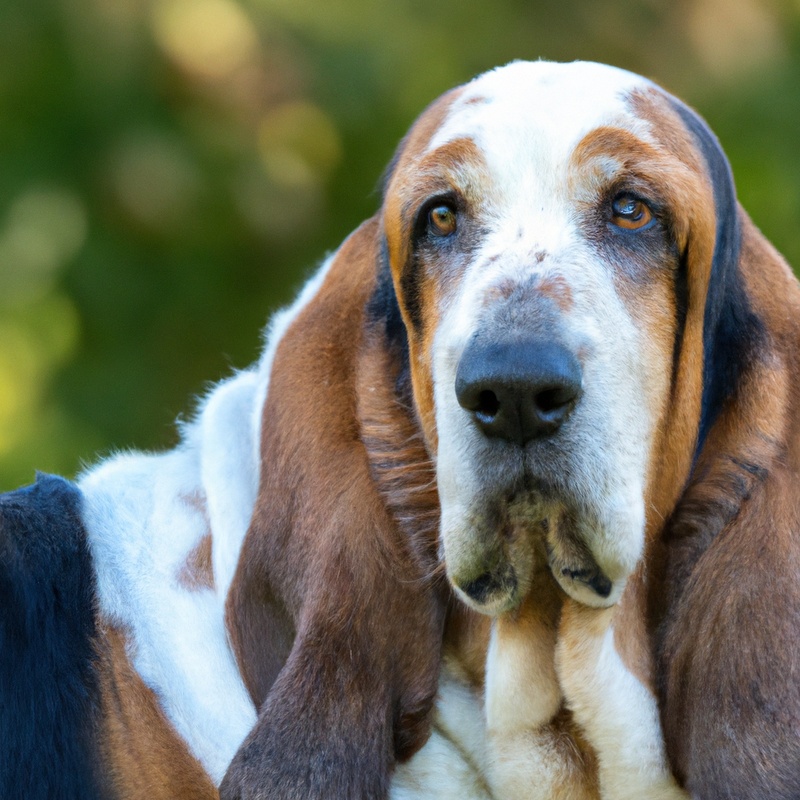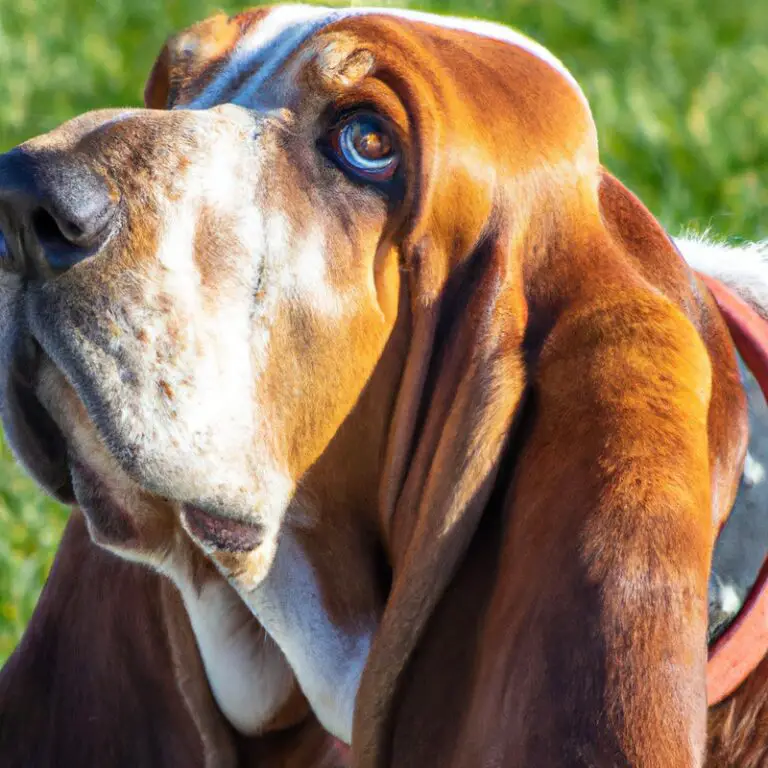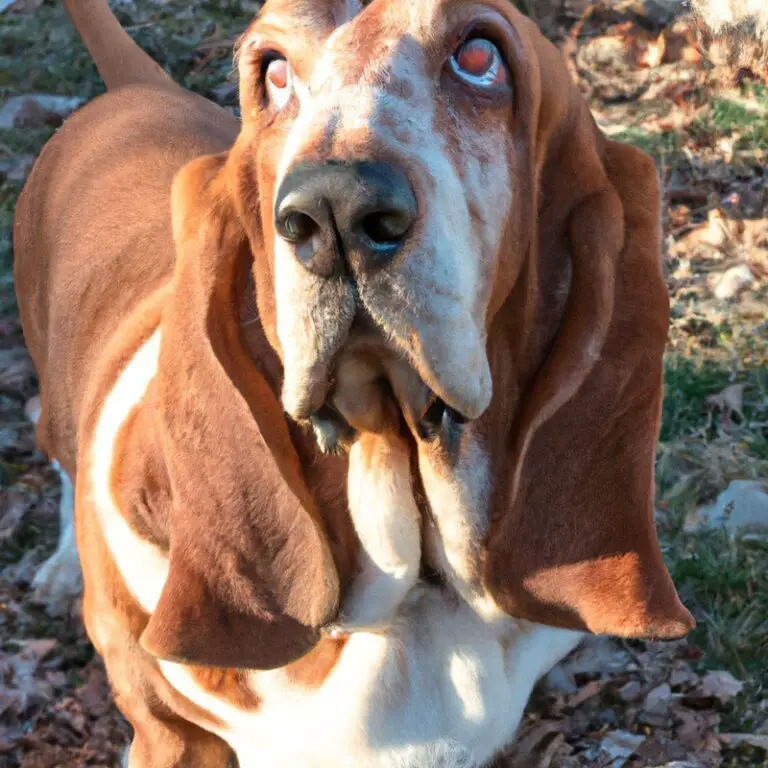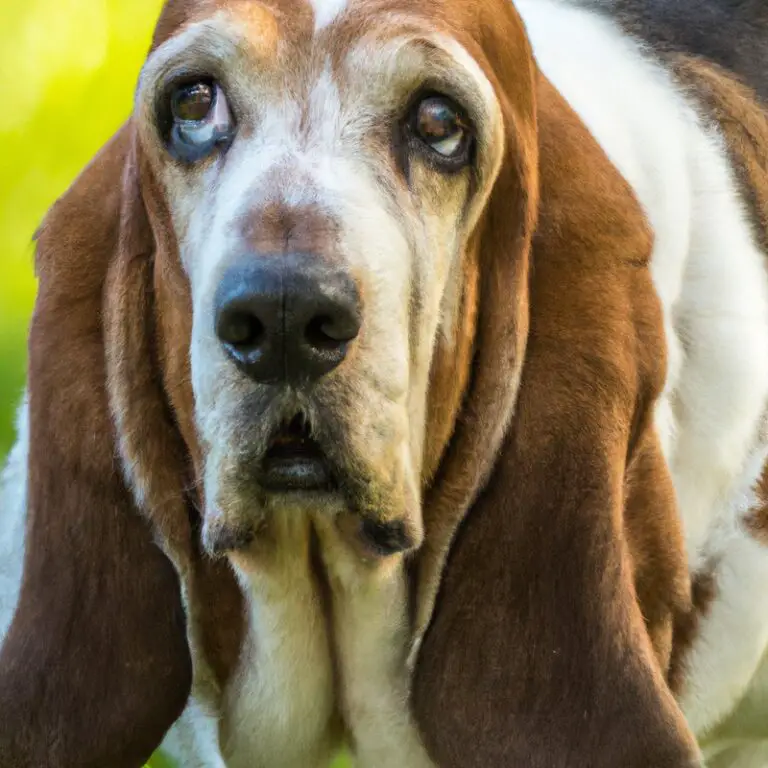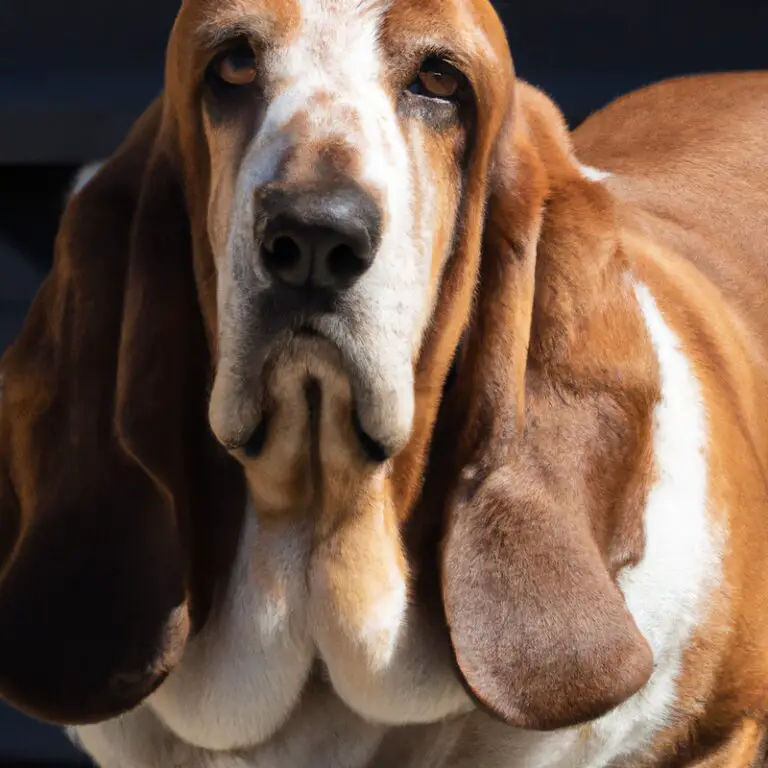Do Basset Hounds Have a Strong Desire To Please Their Owners?
Key Takeaways:
- Basset Hounds generally do not have a strong desire to please their owners.
- They are independent and may prioritize their own interests over pleasing their owners.
- Basset Hounds need patient training techniques to encourage desired behaviors.
- Establishing a strong bond and positive reinforcement can enhance obedience in Basset Hounds.
Do Basset Hounds have a strong desire to please their owners? As a dog lover and proud Basset Hound owner, I can confidently say that these loyal and affectionate dogs are known for their devotion and unwavering love for their humans.
In this article, we’ll delve into the fascinating world of Basset Hound temperament, exploring their origins, inherent traits, and the role genetics play in shaping their personality.
We’ll also delve into the unique challenges of training Basset Hounds and discuss strategies to motivate them to please their owners. So, if you’re curious about how to strengthen the bond with your Basset Hound and manage any behavioral issues, this article is for you!
| Basset Hounds | Desire to Please Owners |
| Yes | Low to moderate |
Understanding Basset Hound temperament
Origins and characteristics of Basset Hounds
Basset Hounds have a fascinating history, originating from France in the 16th century.
They were bred for hunting small game, particularly rabbits, due to their exceptional sense of smell.
Bassets are known for their unique characteristics, such as their long ears, droopy eyes, and short stature.
They have a calm and friendly temperament, making them great family pets.
Bassets are generally laid-back and enjoy leisurely walks, but they can be stubborn at times.
Their affectionate nature and loyalty make them wonderful companions for the right owner.
Inherent traits of Basset Hound temperament
Basset Hounds possess certain inherent traits that make them unique. Firstly, they are known for their gentle and laid-back nature.
Secondly, Basset Hounds have a keen sense of smell, owing to their origins as scent hounds.
This can sometimes lead to stubborn behavior when they catch a scent. Thirdly, they are also known for their love of food and tendency to overeat, so proper portion control is crucial.
Lastly, Bassets are generally friendly and sociable, making them great family pets.
Understanding these traits is key to nurturing a happy and well-adjusted Basset Hound.
The role of genetics in a Basset Hound’s personality
Genetics plays a significant role in shaping a Basset Hound’s personality. Bred for their distinctive traits, Bassets often inherit certain characteristics like their friendly and laid-back nature.
Their genetic predisposition can influence their temperament, behavior, and even their abilities in activities such as tracking scents.
Keep in mind that genetics alone don’t determine everything about a Basset Hound’s personality, as environmental factors and training also play a role. Nonetheless, understanding their genetic background can provide insights into their temperament and help owners better meet their needs.
Basset Hounds and their relationship with their owners
Basset Hounds as companion animals
Basset Hounds make wonderful companion animals. They have a friendly and affectionate nature that makes them great for families and individuals alike.
Bassets love to be with their owners and are known for their loyal and devoted personalities.
They enjoy spending quality time together, whether it’s going for walks, playing games or simply lounging on the couch. While Basset Hounds may have their own independent streak, their love and companionship make them a cherished addition to any home.
Basset Hound loyalty and devotion to their owners
Basset Hounds are known for their loyalty and devotion to their owners. They form strong bonds and become deeply attached to their human companions.
These dogs thrive on human companionship and are happiest when they are with their owners.
Basset Hounds will often follow their owners around the house and want to be involved in their daily activities. Their loyalty and devotion make them excellent family pets, as they are always eager to please and be by their owner’s side.
Basset Hound separation anxiety and its impact on the owner’s bond
Basset Hound separation anxiety can have a significant impact on the owner’s bond. When a Basset Hound experiences separation anxiety, they may become extremely distressed when left alone, leading to destructive behavior and excessive barking.
This can strain the relationship between the owner and the dog, as the owner may feel frustrated and overwhelmed by the dog’s behavior.
It’s important for owners to address and manage separation anxiety in order to strengthen their bond with their Basset Hound.
Do Basset Hounds have a strong desire to please?
Basset Hound’s independent nature
Basset Hounds are known for their independent nature.
They have a strong sense of self and are not overly needy or clingy like some other breeds.
This independent streak can sometimes make training a bit more challenging, as they may not always be motivated to please their owners.
It’s important to be patient and find ways to motivate them, such as using positive reinforcement techniques.
Despite their independence, Basset Hounds are still loving and loyal companions who will form a strong bond with their owners.
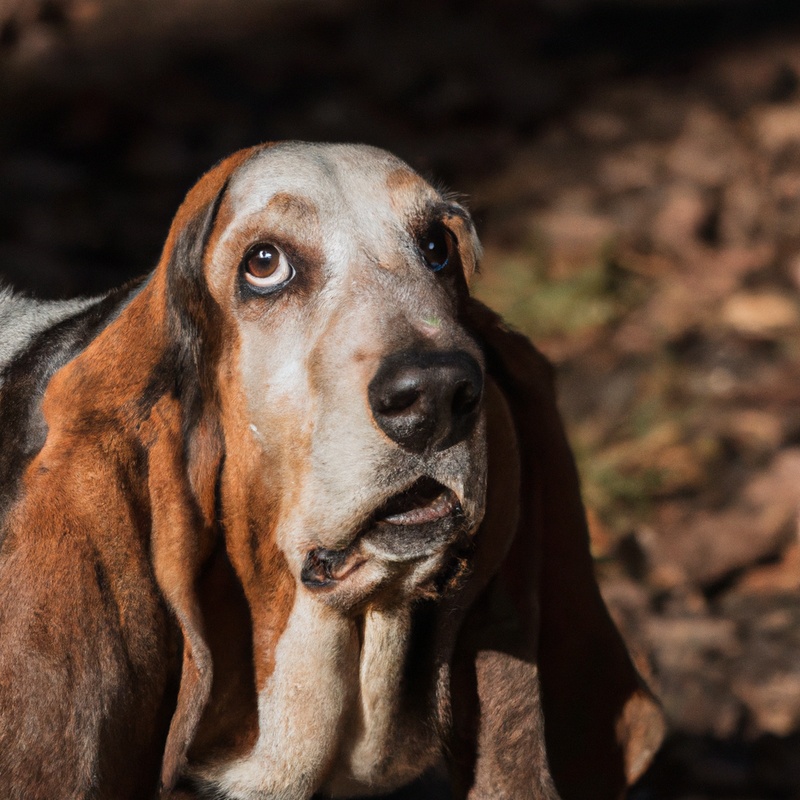
Training challenges specific to Basset Hounds
Training Basset Hounds can be challenging due to their independent nature and stubborn streak.
They have a tendency to follow their own instincts rather than listening to commands.
Bassets can also become easily distracted, making it difficult to keep their focus during training sessions.
Patience, consistency, and positive reinforcement techniques are key when training these lovable, but sometimes stubborn, dogs.
It’s important to find what motivates your Basset Hound and use it as a reward to keep them engaged and willing to please.
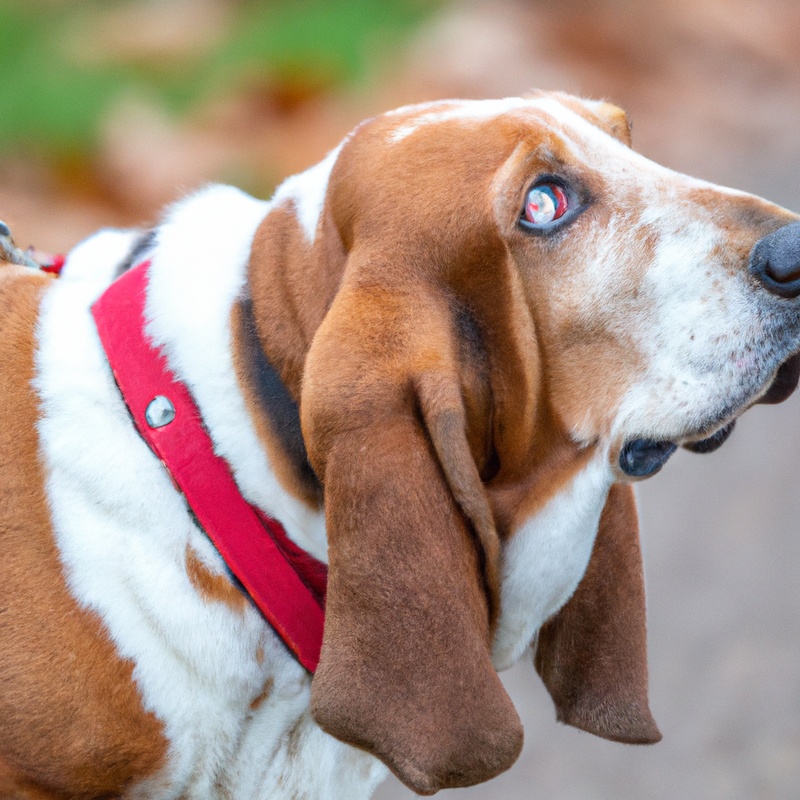
Motivating Basset Hounds to please their owners
Motivating Basset Hounds to please their owners can be a task, as they have an independent nature.
However, with patience, consistency, and positive reinforcement, you can encourage your Basset Hound to want to please you.
Using treats, praise, and rewards during training sessions will help them understand what behaviors are desired.
Engaging them in stimulating activities and establishing clear communication will also strengthen the bond between you and your Basset Hound.
Remember, building trust and creating a positive training environment will go a long way in motivating your Basset Hound to please you.
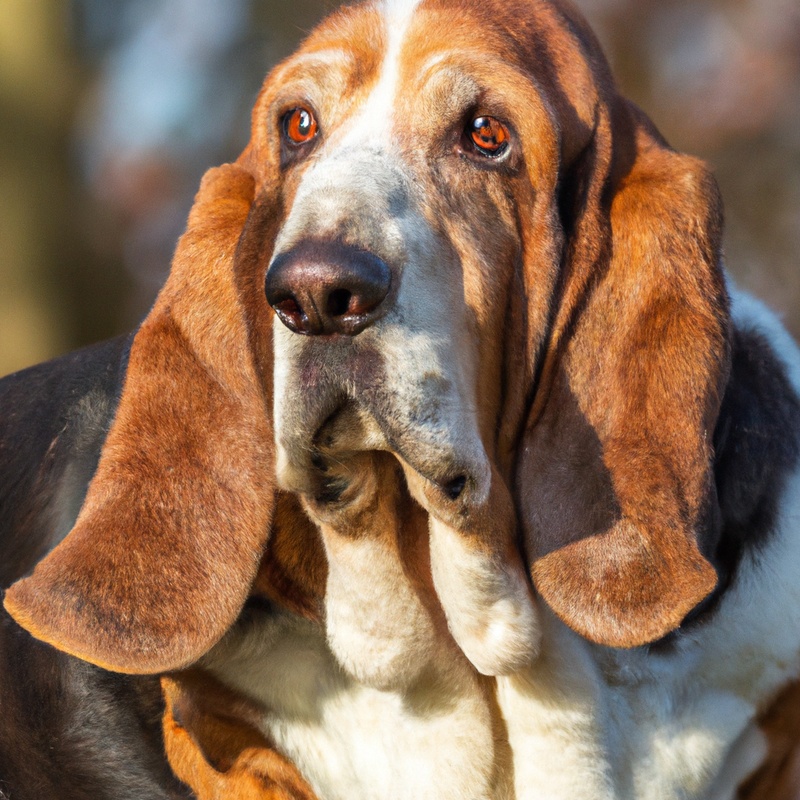
Strengthening the bond with your Basset Hound
Positive reinforcement techniques for training Basset Hounds
Positive reinforcement techniques are highly effective when training Basset Hounds.
I find that rewarding desired behaviors with treats, praise, and affection works best.
Bassets are motivated by food, so using high-value treats can be especially helpful.
Consistency is key, so it’s important to reward them immediately after they exhibit the desired behavior.
Additionally, breaking the training sessions into short, frequent sessions keeps them engaged and focused.
Patience and positive reinforcement go a long way in training your Basset Hound!
Engaging activities and mental stimulation for Basset Hounds
Basset Hounds are intelligent dogs that benefit from engaging activities and mental stimulation.
Here are some ideas to keep your Basset Hound occupied and entertained:
- Puzzle toys: These toys challenge your Basset Hound’s problem-solving skills. Fill them with treats or kibble to provide mental stimulation.
- Scent games: Basset Hounds have an excellent sense of smell. Hide treats or toys around the house or in the yard for them to find.
- Training sessions: Basset Hounds enjoy learning and are eager to please. Teach them new commands or tricks to keep their minds engaged.
- Long walks: Basset Hounds have a strong sense of smell and love to explore. Take them on regular, leisurely walks to stimulate their senses.
- Playdates: Basset Hounds are social animals. Arrange playdates with other friendly dogs to provide social interaction and mental stimulation.
Remember, each Basset Hound is unique, so try different activities to see which ones your furry friend enjoys the most.
Be sure to monitor their energy levels and adjust the intensity of the activities accordingly.
Building trust and communication with a Basset Hound
Building trust and communication with a Basset Hound is key to a strong bond. To establish trust, spend quality time together, be consistent with routines, and provide positive reinforcement.
Use clear and simple commands, and reward good behavior.
Communicate through body language, tone of voice, and gentle touch. Understand your Basset Hound’s needs, and be patient in building trust.
Regular training sessions and engaging activities will strengthen your bond and enhance communication.
Managing behavioral issues in Basset Hounds
Addressing stubbornness and willfulness in Basset Hounds
Basset Hounds are known for their stubbornness and willfulness, which can sometimes make training a challenge.
One effective approach is to use positive reinforcement techniques.
Instead of getting frustrated or using harsh discipline, reward your Basset Hound for good behavior with treats, praise, or playtime.
Consistency is key, so make sure to establish clear boundaries and stick to them.
Engaging them in mental stimulation activities can also help redirect their willfulness.
With patience and gentle guidance, you can successfully address their stubborn side.
Dealing with separation anxiety in Basset Hounds
Dealing with separation anxiety in Basset Hounds can be challenging, but there are strategies that can help. 1.
Gradual departures: Start by leaving your Basset Hound alone for short periods and gradually increase the time.
2. Provide distractions: Leave toys, treats, and puzzles to keep your Basset Hound occupied while you’re away.
3.
Create a safe space: Set up a cozy area with their bed and familiar objects to help them feel secure. 4.
Use positive reinforcement: Reward your Basset Hound for calm behavior when you leave and return.
With patience and consistency, you can help your Basset Hound cope with separation anxiety.
Overcoming destructive behavior in Basset Hounds
Destructive behavior in Basset Hounds can be challenging, but there are ways to overcome it.
Firstly, ensure your Basset Hound gets plenty of exercise and mental stimulation to prevent boredom.
Provide them with interactive toys and puzzles to keep their minds occupied.
Secondly, establish a consistent routine and set clear boundaries to promote good behavior.
Thirdly, consider crate training to prevent destructive behavior when you’re not home.
Finally, seek professional help if needed, such as consulting with a trainer or behaviorist who specializes in Basset Hounds.
With patience and consistency, you can address and overcome destructive behavior in your Basset Hound.
Final Verdict
While Basset Hounds may not possess the same strong desire to please their owners as some other breeds, they are still incredibly loyal and devoted companions. Their independent nature and slightly stubborn tendencies can make training a bit more challenging, but with patience, consistency, and positive reinforcement techniques, they can be motivated to please their owners.
Strengthening the bond with a Basset Hound requires engaging them in mentally stimulating activities, building trust through clear communication, and understanding their unique temperament.
With the right approach, Basset Hounds can become loving and obedient family members, bringing joy and laughter to their owners’ lives. So go ahead and embark on this rewarding journey with your Basset Hound, and you will cherish the deep bond you will form with this remarkable breed.

